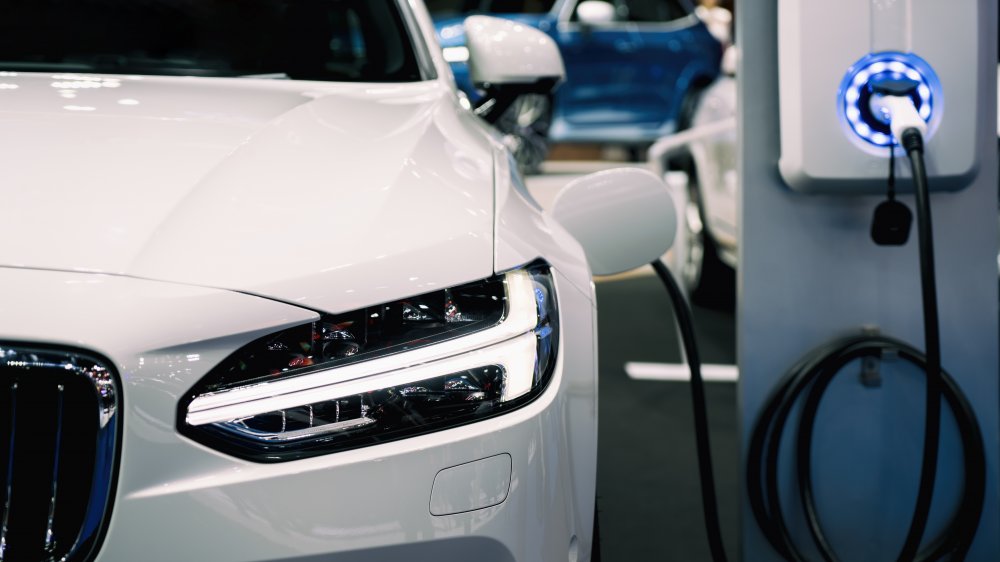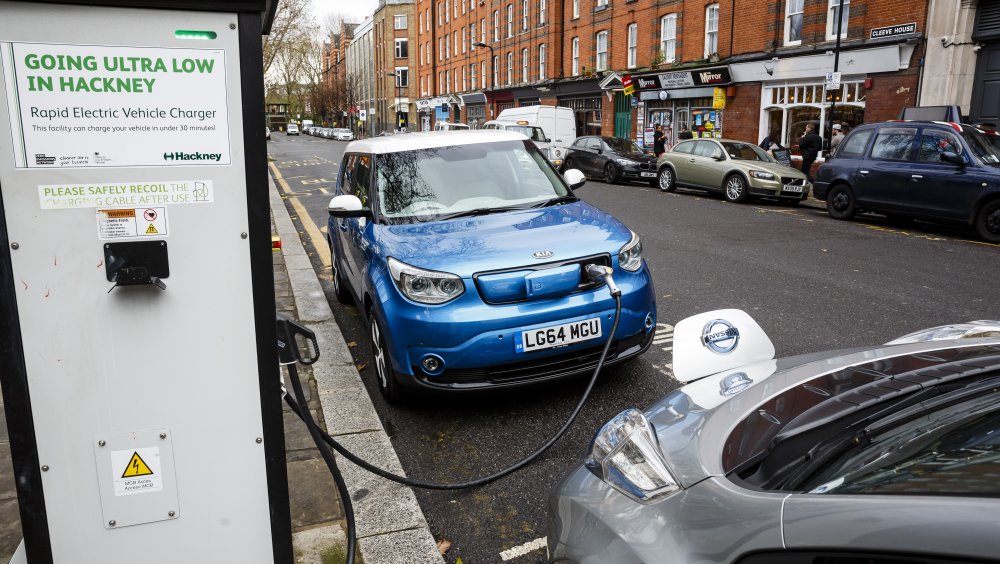How Long Will It Be Until Electric Cars Take Over?
In the near future, fossil fuels will go the way of the dinosaur, no matter how much cash the oil and coal companies pay lobbyists to convince people otherwise. Earth's non-renewable resources are getting sucked up like the last bubbles in an expired Coke can, and when you add the existential threat of climate change to the equation, it becomes clear that the human race is living on a timer.
One bright spot? Pretty soon, today's cars will be replaced by their newer, shinier, more eco-friendly grandchildren. Electric vehicles, or EVs, have already become advanced enough to meet the drivers' needs of almost every vehicle on the roads, and a study by MIT found that if 90 percent of today's gasoline vehicles were replaced by electric ones today, then transportation emissions would drop 30 percent. Getting the world's vehicles electrified should be a top priority — but how far away is this goal from happening?
The electric age is (almost) here
The question isn't "if" electric cars will take over, but rather, "when." While folks like Elon Musk are working their hardest to get an EV in every driveway, it won't happen overnight. That said, if you're having a kid right now, there's a decent chance their first (or maybe second) vehicle will be electric. An analysis by Bloomberg New Energy Finance, according to CNN, estimated that electric vehicles will achieve market dominance by the year 2040, at which point they'll have nabbed about 57 percent of all passenger car sales in the world. The main factors that accounts for this are financial: even today, EVs are less expensive to operate, easier to maintain, battery costs are dropping fast, and even purchases prices will soon match those of non-electric vehicles.
Most likely, EVs will take over within public transportation much faster. It's believed that ride-sharing services (your Ubers, your Lyfts, and so on) will swap over a lot quicker, to say nothing of municipal buses, new sales of which are predicted to become 81 percent electrified by 2040, Forbes reports. Heavy trucks will take a big longer, due to their massive weight. Unfortunately, this portrait of the future isn't entirely rosy. Because the number of cars on the road are increasingly so rapidly, it will limit the impact of greenhouse gas reductions by the time more vehicles switch over to being electric. On the other hand, because most vehicles will go electric, this will hopefully prevent emissions from getting worse. At this point, though, it's more important than ever that EVs take over the market, ASAP.
Regardless, the future is coming, and that future is electric. As summarized by Colin McKerracher, head of advanced transport for BNEF, "Electrification will still take time because the global fleet changes over slowly but, once it gets rolling in the 2020s, it starts to spread to many other areas of road transport. We see a real possibility that global sales of conventional passenger cars have already passed their peak."

